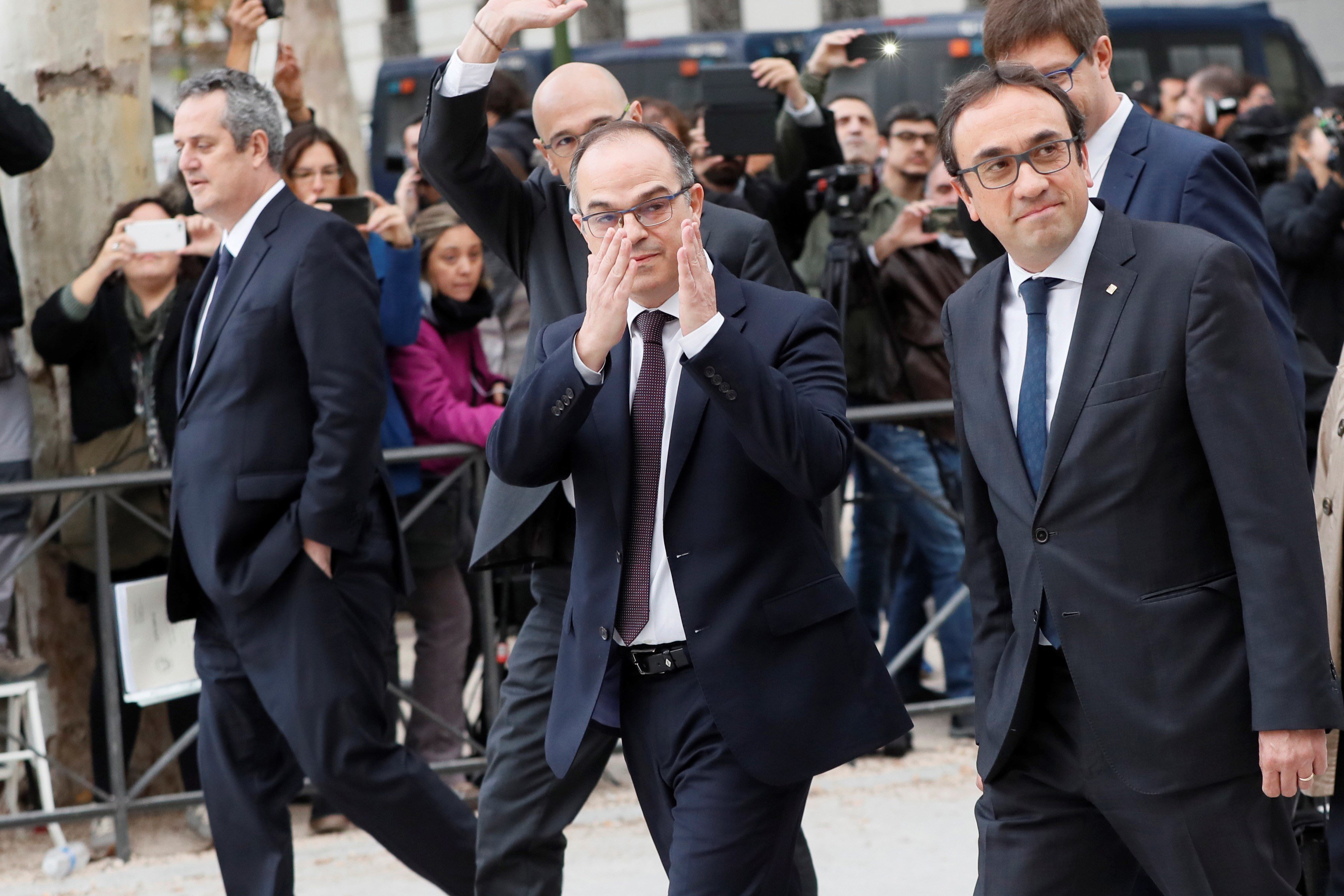Members of the Catalan government and parliamentary deputies will this Thursday take part in a lock-in and fast at the iconic Capuchin convent in Barcelona's Sarrià neighbourhood in support of the political prisoners on hunger strike and in opposition to the Constitutional Court. In March 1966, the convent was the site of the Caputxinada, the first large student protest in Catalonia against Francoism.
This week's action will involve deputies from JxCat, ERC, CUP and CeC, Parliament sources have told El Nacional. It will start at 9am tomorrow, Thursday, and last 24 hours until 9am on Friday.
Anniversary of the Constitution
The protest, which is open to everyone, will coincide with the ceremony in the Spanish Congress for the 40th anniversary of the Constitution, presided over by king Felipe VI.
The organisers say that the "Spanish Constitution is a prison of freedoms" and that the Spanish state "is violating the rights and freedoms of the political prisoners". In their opinion, the Constitution "blocks the exercising of basic rights like the right to self-determination", "allows for the violation of rights like freedom of speech and the right to political representation" and "allows the violent repression of fully democratic expressions".
Four of the seven Catalan political prisoners being held in Lledoners (Jordi Sànchez, Jordi Turull, Joaquim Forn and Josep Rull) have started an indefinite hunger strike in protest of the delays from the Constitutional Court in responding to their appeals against their pretrial detention. The delays are preventing them from turning to the European Court of Human Rights. A number of actions in support of the strikers are being planned around Catalonia.
The Caputxinada
In 1966, the Democratic Union of Students of the University of Barcelona (SDEUB) organised its foundational assembly for 9th March. Police only learnt it was being held at the convent after it had begun. By the time they arrived, more than 450 people were present. The security forces ordered them to leave; students refused to to avoid reprisals as police wanted them to show their ID papers. The monks decided to consider them their guests.
The students filled their time with courses and speeches, making the most of the number of intellectuals present. There were problems however, especially in terms of sleeping space and food, because the convent wasn't designed for so many guests at once.
Attempts by the monks, with the help of the bishop of Barcelona, to negotiate with police failed. On 11th March, Franco himself ordered agents to clear out the convent and identify everyone present. The police did so (although they didn't identify the minority of women), without the church's permission. Many of those present received heavy fines, some were expelled. Sympathetic teaching staff were also fired and some were even put on trial. They did, however, receive support from broad swathes of Catalan society and even abroad. An art auction organised in Paris earned two million pesetas to meet the court's demands. It became the spark that would spread into much of the future opposition to the regime.

